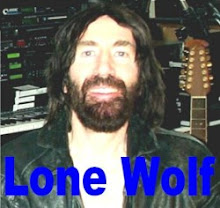
In 2019 Los Angeles, retired cop Rick Deckard (Harrison Ford) is recruited as a "Blade Runner" to track down and eliminate four android replicants that have mutinied in space and returned to Earth. The replicants are sophisticated synthetic slaves with only hours to live, and they frantically search for a way to prolong their lives.
Rick Deckard's boss Bryant (M. Emmet Walsh) says, "I need ya, Deck. This is a bad one, the worst yet. I need the old Blade Runner. I need your magic." Deckard's atttitude is, "They don't advertise for killers in the newspaper. That was my profession. Ex-cop. Ex-Blade Runner. Ex-killer."
Bryant lists the offenders: Roy Batty (Rutger Hauer) is a commando, Leon Kowalski (Brion James) is a soldier, Zhora (Joanna Cassidy) is an assassin, and Pris (Daryl Hannah) is a "basic pleasure model". All are Nexus-6 model replicants, with a four-year lifespan. Deckard teams up with Gaff (Edward James Olmos) and they visit the Tyrel Corporation Headquarters. Secretary Rachael (Sean Young) complicates and confuses the movie because she is an experimental replicant that believes she is human. At this point we start to wonder who is really human.
(Roy Batty wants Eldon Tyrell to extend his lifespan)
Tyrell: "Would you... like to be upgraded?"
Batty: "I had in mind something a little more radical."
Tyrell: " What... what seems to be the problem?"
Batty: "Death."
Tyrell: "Death, ah, well that's a little out of my jurisdiction. You..."
Batty: "I WANT MORE LIFE, f**ker!"
Deckard searches Leon's apartment, "retires" Zhora, then falls in love with Rachael, even though he is ordered to "retire" her. Roy locates Eldon Tyrell (Joe Turkel), creator of replicants, and kills him and geneticist J. F. Sebastian (William Sanderson). Deckard is sent to Sebastian's apartment and "retires" Pris, just as Roy returns and chases him through a dilapidated building. Roy saves Deckard's life just before he "dies". Deckard and Rachael flee.
Deckard in a voice-over says, "I don't know why he saved my life. Maybe in those last moments he loved life more than he ever had before. Not just his life, anybody's life, my life. All he'd wanted were the same answers the rest of us want. Where did I come from? Where am I going? How long have I got? All I could do was sit there and watch him die."
BLADE RUNNER is a futuristic sci-fi thriller loosely based on Philip K. Dick's 1968 novel "Do Androids Dream Of Electric Sheep?" The production design is visually impressive, but it is dark, gloomy, and moody. Even with the very good special effects, the movie is like watching a pyrotechnical display through dense fog. The cityscape is sleazy, cluttered, stylishly colourful, with a bewildering mixture of architecture that resembles Tokyo more than L.A.
Initially it was poorly received, but has since become a cult classic. It is extremely influential, often imitated, but never duplicated. An intelligent, thought-provoking film, BLADE RUNNER suffers from mostly unappealing characters, a muddled and ambiguous plot, and a lack of dramatic momentum. Worst of all, it depicts a future dystopia for us. It is depressing. Even the original happy ending was eventually removed by the director to make the film a complete nightmare.
The cast also includes: James Hong (Hannibal Chew), Morgan Paull (Holden), Kevin Thompson (Bear), John Eward Allen (Kaiser), Hy Pyke (Taffey Lewis), Kimiko Hiroshige (Cambodian lady), Bob Okazaki (Hoie Lee), Judith Burnett (Ming Fa), Leo Gorcey Jr. (Louie), and many others. Hampton Fancher and David Peoples wrote the script. Vangelis composed the music. Ridley Scott directed.
Seven versions of the film exist, but only the Director's Cut and International Cut are widely available. The original 1982 Criterion Edition includes more graphic violence than the US theatrical release. The US Original Version is also called the Domestic Cut. Two workprint versions are rarely shown, though one was distributed in 1991 without the director's approval. The Ridley Scott-approved 1992 Director's Cut is the only version on DVD. The Broadcast Version is edited for brief nudity and profanity.
















